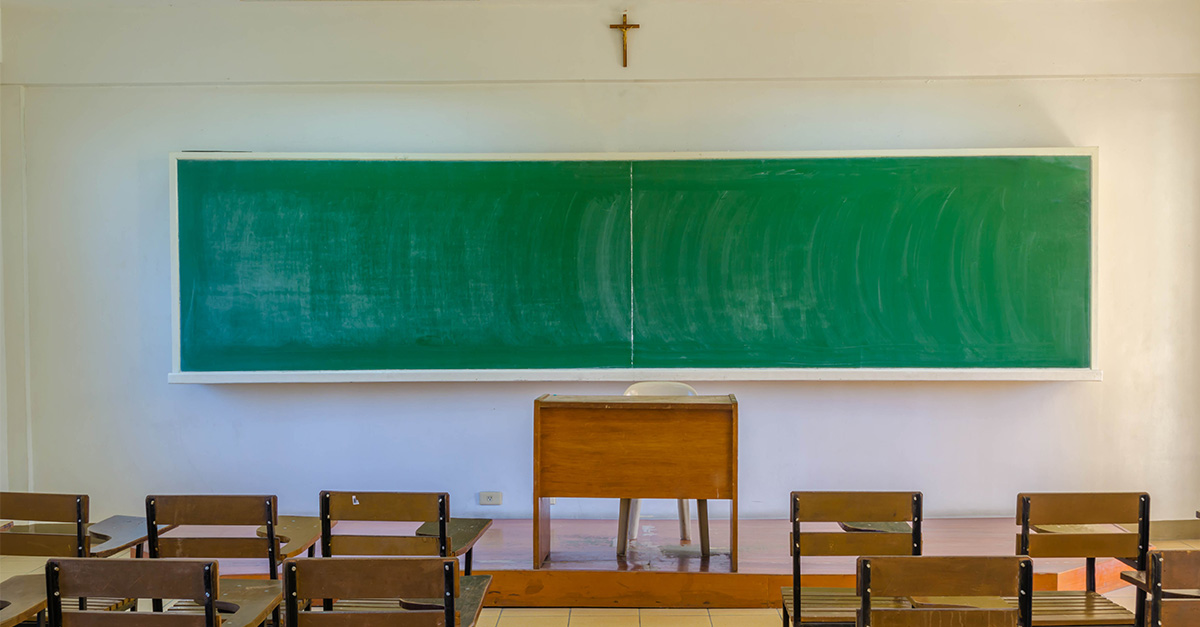


Get a free copy of Parental Rights & Education when you subscribe to our newsletter!

“All parents should be able to send their kids to schools that are the best fit for them, and the First Amendment protects parents’ right to choose religious schools. For more than two decades, Vermont unlawfully excluded religious schools and their students from public benefits, essentially eliminating school choice…”
–PAUL SCHMITT, ALLIANCE DEFENDING FREEDOM
Vermont will cease denying tuition program benefits to students who attend religious schools, acknowledging that under the Supreme Court’s decision in Carson v. Makin this past June the policy is unconstitutional.
In the landmark case, the Supreme Court ruled that Maine was unconstitutionally discriminating based on religious beliefs. The ruling stated,
“The benefit provided by statute is tuition at a public or private school, selected by the parent, with no suggestion that the ‘private school’ must somehow provide a ‘public’ education. Maine may provide a strictly secular education in its public schools. But BCS and Temple Academy—like numerous other recipients of Maine tuition assistance payments—are not public schools. Maine has chosen to offer tuition assistance that parents may direct to the public or private schools of their choice. Maine’s administration of that benefit is subject to the free exercise principles governing any public benefit program—including the prohibition on denying the benefit based on a recipient’s religious exercise.”
Like Maine, Vermont has a tuition assistance program that allows parents in areas with no local public school to use tuition funds to send their children to another school, including private schools. And like Maine, Vermont prohibited parents from using tuition funds to send their children to religious schools. This led to two lawsuits filed by ADF on behalf of parents. After the ruling in Carson v. Makin, Vermont acknowledged that their denial of benefits to parents was unconstitutional.
Last week, Vermont officials agreed to settle the cases. The settlement will require districts to fairly process parents’ requests. Vermont will also pay back the plaintiffs for denied tuition assistance. Other parents will be able to request denied tuition assistance as well. The government will also pay for the families’ attorney’s fees.
ADF Legal Counsel Paul Schmitt said,
“All parents should be able to send their kids to schools that are the best fit for them, and the First Amendment protects parents’ right to choose religious schools. For more than two decades, Vermont unlawfully excluded religious schools and their students from public benefits, essentially eliminating school choice for many parents in the state. As the U.S. Supreme Court recently concluded in Carson v. Makin, the government cannot eliminate families’ benefits just because they choose to use those benefits at religious schools that provide religious instruction.”
He celebrated the school districts’ decision by saying, “We are thankful the local school districts decided to do the right thing and give families the benefits they were entitled to. Many of these families made great sacrifices to provide their kids with a faith-based education and we hope even delayed benefits can provide some financial help.”

The Supreme Court’s decision is reaping benefits for parents by preventing future discrimination. States have no right to deny tuition assistance based on religious convictions, especially when they are giving those same funds to secular private schools.
America was founded on the right to the free exercise of religion. For years the government has been denying that right through a gross misuse of the concept of separation of church and state. The Bill of Rights protects Americans’ religious freedom from government intrusion, not the other way around. The left has twisted the ban on the establishment of a state church to mean that religion is anathema to government. However, by banning religion in the public square and demanding that all public institutions and citizens embrace secular atheism, it has, ironically enough, only succeeded in establishing a state church, one that increasingly demands adherence to a secular worldview and morality.
Fortunately, the Supreme Court recognized that secularism doesn’t trump citizens’ rights to exercise their own beliefs. In fact, Carson v. Makin helps to uphold the right of U.S. citizens to live out their religious beliefs rather than relegate their rights to a paltry “freedom to worship” in private.
Ready to dive deeper into the intersection of faith and policy? Head over to our Theology of Politics series page where we’ve published several long-form pieces that will help Christians navigate where their faith should direct them on political issues.
Christian conservative news and issues that matter. Curated just for you!
